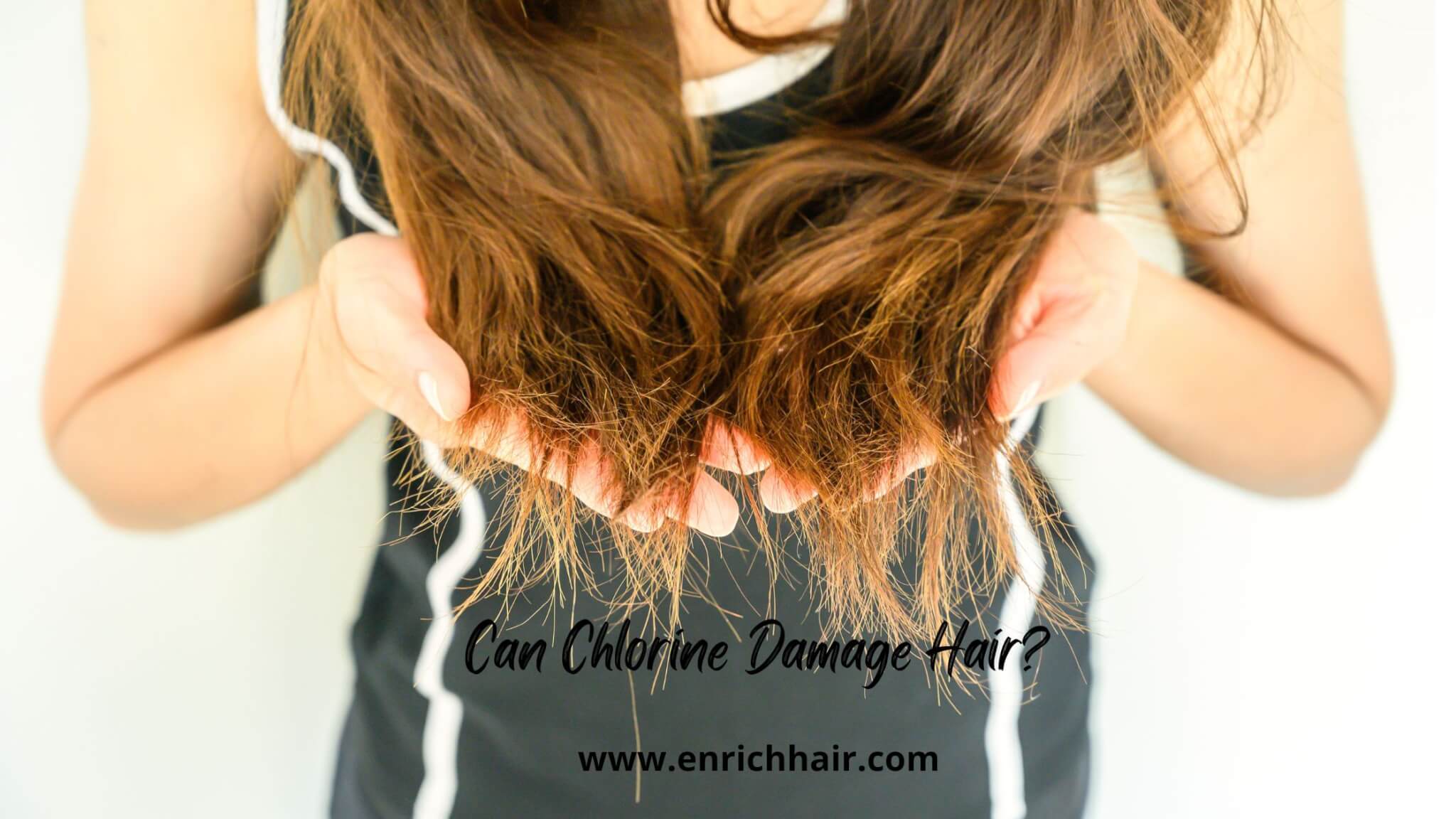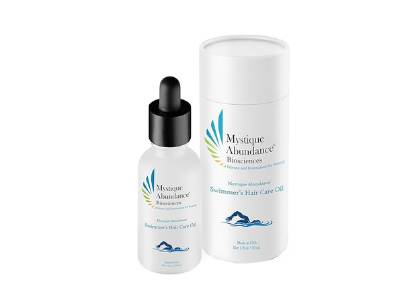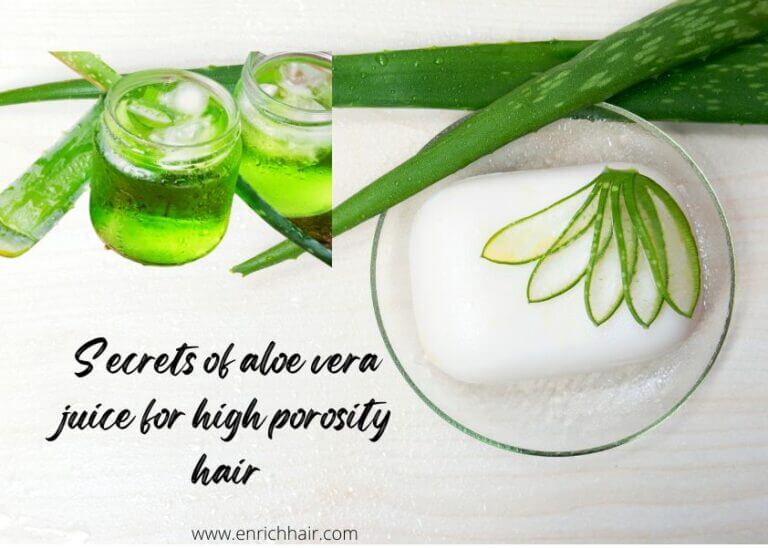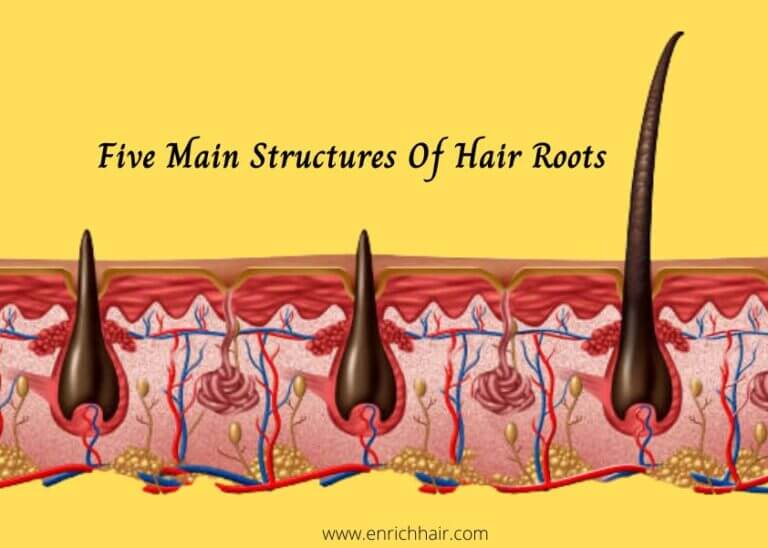Can Chlorine Damage Hair? Learn Why?
Table of Contents
Ever since swimming pools were invented, people have been wondering if chlorine can damage hair. The answer is: yes, it can! Chlorine is a necessary ingredient in swimming pools, but it can also be damaging to our hair. Chlorine can strip the hair of its natural oils and leave it feeling dry and brittle In this blog post, we’ll discuss the effects of chlorine on our hair and how to protect it from damage. We’ll also provide some tips for removing chlorine from our hair after a swim. Here are steps you can take to protect your hair from chlorine damage. Keep reading for tips on how to keep your locks looking healthy all day long!
What Is Chlorine And What Does It Do To Hair?
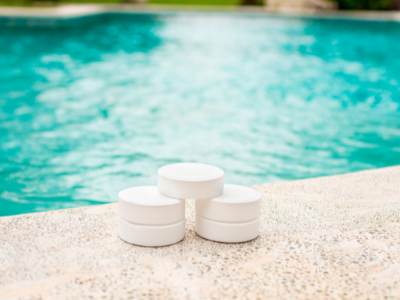
Chlorine is a common chemical used in many households and businesses to sanitize surfaces. Chlorine can be found in swimming pools. It is added to the water to help kill bacteria. While chlorine can be effective in killing bacteria, it can also damage hair. When hair is exposed to chlorine, it can strip the hair of its natural oils. This can lead to dryness, brittle strands, and even breakage. In addition, chlorine can also cause fade-resistant hair color to fade prematurely. To protect your hair from damage, many protective ways are there that we will discuss further.
Protect Your Hair From Chlorine Damage
Chlorine is a strong chemical that is used to kill bacteria in the water. Unfortunately, it can also damage your hair. The good news is that there are ways to protect your hair from chlorine damage.
- One way is to wet your hair before you get into the pool. This will help to dilute the chlorine and reduce its ability to penetrate your hair shaft.
- Another way is to wear a swim cap. This will help to keep your hair dry and shielded from chlorine. A swim cap can be a lifesaver when it comes to protecting your hair from chlorine damage. Look for a cap made of silicone or other material that creates a watertight seal. This will help keep the chlorine out and your hair healthy.
- Avoid using heat styling tools on wet hair. The heat can further damage already compromised strands.
- You can also use a hair mask to help protect your hair from chlorine damage. Hair masks can help trap the chlorine and keep it from damaging your hair. You can find hair masks at your local beauty supply store.
- Finally, be sure to shampoo and condition your hair as soon as you get out of the pool. This will help to remove any residual chlorine and restore moisture to your hair.
By taking these steps, you can enjoy your time in the pool without damaging your hair.
Side Effects of Chlorine on Hair

Can chlorine damage hair? Here are some of the signs that your hair has been damaged by chlorine exposure including dryness, brittleness, and fading color.
-
Strip Away Natural Oils
Chlorine can strip away the natural oils that protect your hair, making it more susceptible to damage. To avoid this damage, it is important to avoid using chlorine on your hair.
-
Dry, Brittle Hair
It can also cause your hair to become dry, brittle, and break easily which can be difficult to repair. There are a few things that you can do to help restore your hair’s health and prevent it from breaking down and becoming dry and brittle.
One of the first things that you can do is to avoid using chlorine products. If you can’t avoid using them, make sure to use them sparingly. Chlorine will damage your hair even if you don’t use it excessively.
-
Slight Color Changes
Chlorine can cause your hair color to fade, leaving you with dull, lifeless locks.. It can make your hair lighter or darker, and it can also make it frizz.
-
Frequent Hair Loss
This chemical can cause hair loss in people who frequently use these facilities. Chlorine can damage the hair follicles, which can lead to hair loss. This can be especially true for people who have very thin or brittle hair.
-
Rough, Itchy Scalp
I used to always get a rough itchy scalp whenever I would use chlorine. I would scratch it and it would just make it worse. I eventually figured out that the chlorine was causing my scalp to be itchy. I stopped using it and my scalp has never been this smooth.
If you suspect that your hair has been damaged by chlorine, be sure to follow up with a deep conditioning treatment to help restore moisture and shine.
Can Chlorine Damage Hair Permanently Or Is It Reversible Damage?
Once the damage has been done, it is difficult to repair. This is why it is important to take care of your hair before and after swimming in chlorinated water. Apply a deep conditioner or leave-in treatment before swimming to help protect your strands, and be sure to rinse your hair thoroughly with clean water afterward. By taking these precautions, you can help minimize the damage that chlorine can do to your hair.
Are There Any Ways To Reverse Chlorine Damage If It Has Already Occurred?
Yes, there are a few ways to help repair chlorine-damaged hair.
First, try using a clarifying shampoo to remove build-up from your hair. Clarifying shampoos can be harsh, so be sure to follow up with a deep conditioning treatment. If you’re going to be spending a lot of time in the pool, it’s a good idea to invest in a shampoo and conditioner designed to protect your hair from chlorine damage. These products contain ingredients that help seal the cuticle and prevent chlorine from penetrating the hair shaft.
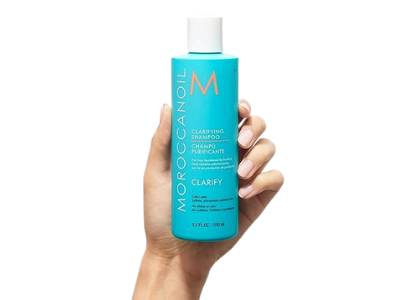

You can also try using products that contain coconut oil or olive oil, as these can help to replenish lost moisture.
-
A hair mist is another great way to protect your hair from chlorine damage. It works by creating a barrier between your hair and the chlorine in the water. Look for a mist that contains silicone or other ingredients that will help seal the cuticle and protect your hair from damage.
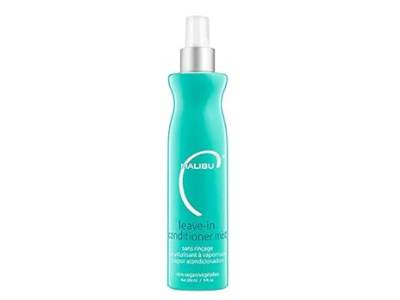
Finally, make sure to avoid heat styling whenever possible, as this can further damage already fragile hair. By taking these steps, you can help reverse the effects of chlorine damage and restore your hair to its healthy state.
How Can You Prevent Chlorine Damage In The Future?
There are a few ways to prevent chlorine damage in the future:
1. Use a product that is specifically designed to protect surfaces from chlorine damage.
2. Keep a close eye on the amount of chlorine being used in your pool. If it’s over-used, it can cause damage.
3. Use a filter that is specifically designed to remove chlorine.
4. Keep an eye on the pH levels of your pool. If they get too high, chlorine can start to break down, causing damage.
5. Keep an eye on the water temperature. If it gets too hot, chlorine can evaporate faster.
How Often Should You Wash Your Hair After Swimming In A Pool?
Your hair can become quite dirty after swimming in a pool, as it absorbs all the chemicals and pollutants in the water. It is best to wash your hair as soon as possible after swimming, at least within a few hours. If you can’t wash it immediately, rinse your hair with clean water as soon as possible. Washing your hair regularly after swimming in a pool will help keep it healthy and free of any pollutants.
FAQs:
Does chlorine affect hair growth?
There is no definitive answer to this question as the effect of chlorine on hair growth is dependent on a number of individual factors, including hair type and length. However, it is generally recommended that people avoid exposing their hair to chlorine if possible, as it can damage the hair shaft and lead to hair loss.
How do you know if your hair is damaged by chlorine?
If your hair feels dry and brittle after swimming, it’s likely been damaged by chlorine.
What removes chlorine from hair?
One option is to use a chlorine removal shampoo. Soaking hair in a vinegar and water solution will also remove chlorine from hair.
Is it OK to sleep with chlorine in your hair?
It is not recommended to sleep with chlorine in the hair as it can cause damage.

